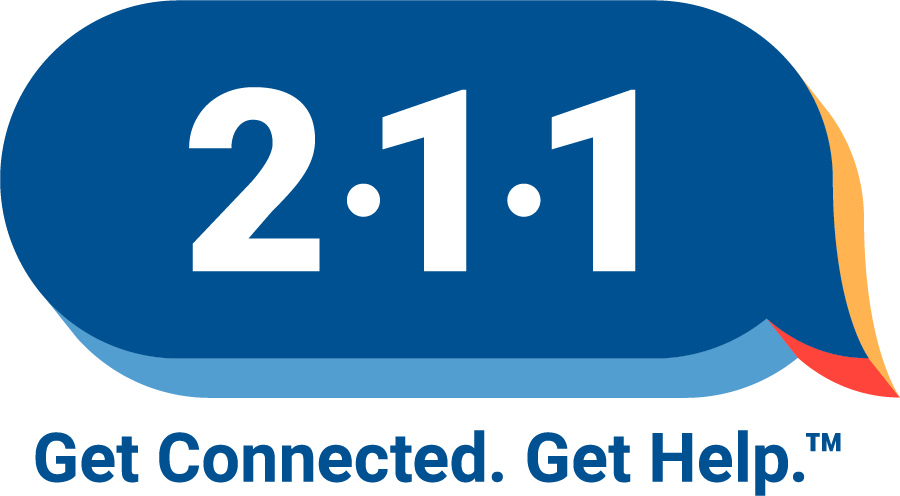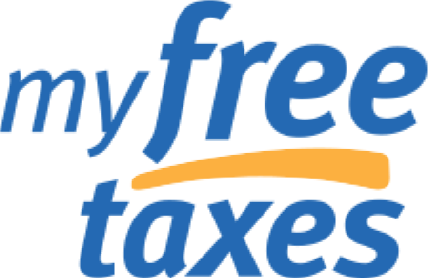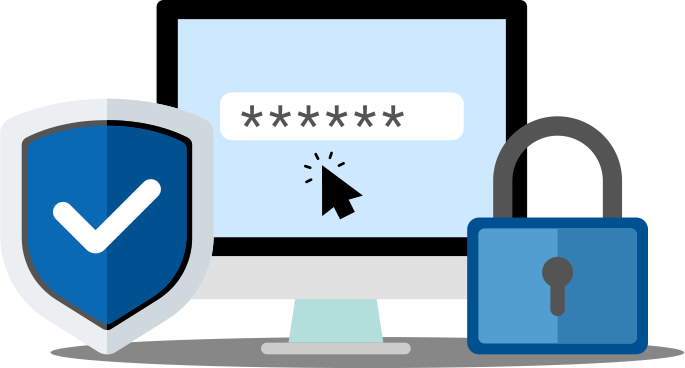Final Results For UWCA’s 2020 Proposition Endorsements
The dozen ballot measures Californians weighed in on this month were a multitude of reforms addressing everything from corporate taxation, rent control, criminal justice to other topics. As a network United Ways of California endorsed Propositions 15, 16, 17, and 25. Though only one of these measures received enough support to pass, we will continue to work with state and city electeds and partner organizations to help advance the common good for every individual in every community. Please find our post-election analyses of each propoistion we endorsed down below.
Proposition 15: The “Split Roll” Initiative / “Schools And Communities First” Initiative
Californians made their voices heard by rejecting Proposition 15 by rejecting the measure 52% to 48%. The failure of this proposition’s passage means that schools, cities, and local governments will miss out on billions in desperately needed resources. Proposition 15 would have overturned an older proposition – Proposition 13 which passed in 1978 – that allowed state property taxes on commercial properties to be based on their purchase price rather than their market value. The proposition was designed to protect homeowners on limited incomes from losing their homes due to rising property taxes, by limiting the assessed value of their property from increasing over time.
Unfortunately, for decades Proposition 13 has arbitrarily shielded some large commercial property from fair market valuations which was not only unfair to newer businesses, but it also meant local governments and school districts have lost billions in revenue and severely cut investments in infrastructure and education. It also led local governments to prioritize pursuit of sales taxes, de-emphasize development of housing and forego public goods such as parks, libraries and more.
Had it passed, Proposition 15 would have been a critical step of undoing decades of unfairly favoring some business owners over others, and the distortions that this has caused in property markets and local government priorities, while also enabling local governments and schools to better address long-deferred infrastructure needs and fight social and racial inequities in education and social services.
Proposition 15’s failure to pass is disappointing and somewhat surprising. Leading up to November 3rd, only 1 out of 14 polls conducted on the initiative had the measure failing. In fact, on average nearly 50% of people polled – sample sizes averaged approximately 1650 people – were in favor of the measure versus 40% against with a margin of error of about +/- 4%.
So then, where did it go wrong? Although there is no single reason for the proposition’s failure to pass, misinformation and general confusion on Proposition 15’s purpose played a significant role early on. Specfically, many people believed that the measure would have raised residential property taxes, which was not true at all. However, voter sentiment on property tax hikes – especially in California – might have meant that this measure was doomed from the beginning.
United Ways of California supported Proposition 15 as a critical step to level the playing field for new and emerging businesses, and also to enable local governments and schools to better address long-deferred infrastructure needs and fight social, economic, and racial inequities in education and social services. Schools, communities, and cities have all felt the catastrophic impact of COVID-19.
United Way has a strong history of working closely with business leaders in California and around the world to advance the common good and we will continue to do so. We are a nonpartisan organization and we believe strongly that the involvement of all sectors – business, nonprofits, philanthropy, government, and interested citizens – is required to make progress on vital challenges affecting the health, education and income prospects of low-income children and families. A strong economy, rising employment and growing opportunities for new businesses are critical factors affecting our mission, which is to help families, individuals and communities thrive.
Proposition 16: Repealing The Ban On Affirmative Action
Proposition 16, which would have reinstated affirmative action for California’s public sector, was unfortunately unable to receive the votes necessary to pass with over 56% of the votes tallied in opposition.
Proposition 16 would have overturned Proposition 209 of 1996 – which banned affirmative action in California. As such, public universities were no longer allowed to consider race, sex, color, ethnicity or national origin to address diversity in admissions. In addition, state and local governments were banned from considering those same factors when hiring government employees and awarding government contracts.
Assemblymember Shirley Weber introduced ACR 5 in 2019. Upon its passage through the Legislature, it would be up to the voters to decide whether or not to repeal prop 209 and allow for affirmative action policies in the state of California. ACR 5 made several legislative findings expressing the intent of what would become Prop 16. For example, ”Proposition 209 instigated a dramatic change in admissions policy at the University of California, with underrepresented group enrollment at the Berkeley and Los Angeles campuses of the University of California immediately falling by more than 60 percent and systemwide underrepresented group enrollment falling by at least 12 percent.” The resolution additionally cited the critical impact Prop 209 had on the racial wealth gap, unequal pay for women, and over $1 Billion in lost contract awards to minority owned businesses.
In the beginning, Prop 16 was seemingly unstoppable. The campaign raised over $20 million dollars, received endorsements from celebrities, sports teams, countless community-based advocacy groups and nearly every democratic elected official across the state, including Governor Gavin Newsom and Vice President-elect Kamala Harris. Even the UC Regents who kickstarted the movement behind prop 209 in 1995, banning the consideration of race and gender in public universities, under the leadership of then-governor Pete Wilson, had jumped to the support and embrace of Prop 16.
Unfortunately, the voters within the democratic party were not at the same level of alignment as their elected representatives. Early polling numbers from the Public Policy Institute of California showed that prop 16 was only at 46% approval within the Democartic Party alone.
As of October 30th, the Yes on Prop 16 campaign out fundraised their opponents nearly 14 to 1. The supporters had raised roughly 19 million where the opposition had only raised 1.3. Despite this, among likely voters Prop 16 saw 31% support, 47% in opposition, and 22% unsure.
The United Ways of California supported Prop 16 because it would have promoted equitable opportunity for women and people of color and would have been critical in addressing decades of racial, economic, health, housing, and educational injustices for our underrepresented communities.
Without Prop 16, it will remain illegal for California’s public institutions to factor race and gender in college admissions and hiring practices. However, there is a silver lining. While the existing barriers of race and gender to opportunity are still present, many supporters of this initiative have expressed a renewed focus to seeking alternatives to allow for more equitable access to resources for education and workforce development. The University of California recently released a statement promising to “continue to look for innovative and creative approaches to further improve the diversity of its student body through outreach to underserved groups, schools and communities; support for college preparation; and efforts to close equity gaps among students attaining a UC education.”
The United Way of California is committed to working with community leaders and legislative representatives in identifying new ways to strengthen the existing “color-blind” policies for California’s diverse population. It seemed many voters were divided on what exactly Prop 16 did. Without context, banning the consideration of race and gender sounds like equality. And that’s exactly what the opponents of Prop 16 campaigned on. They even called themselves, “Californians for Equal Rights,” referring to Prop 16 as a form of legalizing descrimnation, stepping away from merit-based practices and in some cases, dishonestly framing the consideration of race and gender, as the sole determining factor in college admissions and hiring. If passed, California would have joined 42 other states in taking gender, race, and ethnicity into account when making decisions about government contracts, college admissions and job opportunities. Thus, allowing California to begin moving forward not only from the damage Prop 209 caused, but the decades of systemic racism and sexism which have impacted its most underrepresented communities.
Proposition 17: Restoring Voting Rights For Felony Parolees
Proposition 17 was approved with a resounding 59% voter approval. Total votes in support amounted to 8,788,908 or 59.01%. Conversely, total votes in opposition tallied at 6,105,732 or 40.99%. With the passage of Proposition 17, individuals who have served their time in prison and are on parole will now maintain their constitutional right to vote. Additionally, they will also be allowed to run for elected office. Since its approval, California has now joined 19 other states who currently allow those on parole to participate in elections.
In 2019, Assemblymember Kevin McCarty introduced ACA-6 to amend the constitution to allow Proposition 17 as a measure on the Ballot in California known as the Voting Rights Restoration for Persons on Parole Amendment. It was a legislatively referred constitutional amendment and has since been approved by the California Electorate. A “Yes” on this measure supported the constitutional amendment to allow people on parole for felony convictions to vote and even run for office. A “No” on this measure opposed the constitutional amendment, and allowed for the continuation to prohibit people who are on parole for felony convictions from voting. Prior to this amendment, those convicted of felonies were required to complete both their prison and parole sentences before they could be permitted to vote.
The Free the Vote CA, Yes on Prop 17 PAC, along with a committee associated with Secretary of State Alex Padilla, had received $1.03 million. Total expenditures amounted to $797,654.78. There was no similar PAC established in opposition.
While this proposition received opposition from the Republican Party of California, Crime Victims United and the Election Integrity Project, there was no evidence of any expenditures or other campaign financing towards defeating it.
United Ways of California have always made civic engagement one of our top priorities in order to create a more equitable and fair California for all. We believe that when more Americans can participate in our electoral processes, our communities become stronger, healthier, and more resilient. For individuals on parole, part of the process of reintegration into public life should involve the freedom to work, receive an education, and participate in elections that can directly impact policies in their lives and those of their families. Additionally, because of current laws which perpetuate systemic racism in the criminal justice system, many communities of color have experienced a disparate impact of discriminatory policies and restrictive measures meant to relinquish some or most of their rights. We believe the passage of this measure could therefore be a step forward towards advancing not simply civic equity, but racial equity as well.
With the passage of Proposition 17, California will have over 57,000 new potential voters. In this last election, California and the entire United States of America saw record numbers in voter turnout. This proposition should have a substantive effect on voter turnout moving forward. Additionally, those running for office or currently holding office will be more likely to shape policies and advocate alongside this newly empowered voter population.
Proposition 25: Replacing Cash Bail With A Risk Assessment System
Californians have officially voted against the replacement of the cash bail system by a margin of 56% to 44%. With 100% of precincts reporting, over 8 million Californians have struck down Proposition 25. There were high hopes for the measure to overhaul the cash bail system and undo decades of discriminatory practices against low-income individuals which disproportionately come from communities of color. The failure of this measure means that Senate Bill 10 will officially be repealed, thus keeping in place the use of cash bail for detained suspects awaiting trials.
The Replace Cash Bail With Risk Assessment Referendum, or Proposition 25, is a statewide measure which will decide on whether to uphold or repeal the 2018 Senate Bill 10 (SB 10). If approved, Prop 25 would affirm and retain the state’s current cashless bail system already approved by the California legislature via SB 10. SB 10 was originally created to make California the first state to end the use of Cash Bail for all detained suspects awaiting trials, and replace the use of Cash Bail with a system of risk assessment to determine whether a detained suspect should be granted pretrial release and under what conditions. This risk assessment categorizes detained suspects as either low risk, medium risk, or high risk, with “risk” being defined as the detained suspect’s likelihood of failure to appear in Court. Under this system, suspects deemed as low risk would be released from jail, suspects deemed as medium risk would be released or detained depending on the local court’s rules, and those deemed as high risk would remain in jail with the chance to argue for their release before a judge. SB 10 would exempt suspects of misdemeanors, with exceptions, from needing a risk assessment to be released from jail.
Leading up to the November 3rd election, there were high hopes that calls for equity and racial justice would help lead the measure to success. There was only a single poll conducted on the measure that had 39% in favor, 32% against, and 29% undecided with a margin of error of +/- 2%. Since there was only a single poll conducted it is hard to pinpoint the measure’s outcome to its polling. Financially, there were two main Political Action Committees for the measure’s financial contributions. The End Predatory & Unfair Money Bail PAC registered in support of upholding the targeted bill (a “yes” vote on the measure) and it reported $14.45 million in contributions. The Californians Against the Reckless Bail Scheme PAC registered to advocate for the veto referendum (a “no” vote on the measure) and raised $10.25 million.
The biggest issue that revolved around the measure was the apprehension around the algorithms that would determine risk assessment. There is significant evidence that the current bail system is discriminatory toward low-income individuals, even if they are being charged for the same crime as their more well off counterparts; and, since those individuals tend to come from communities of color there are some racial implications as well. However, there is also data that supports the skepticism of algorithms in policing systems. Algorithms tend to discriminate toward low-income communities of color as well. The main question was whether the algorithms-based system would be more or less discriminatory than the current cash bail system. California voters decided that the uncertainty of the risk based assessment was not worth implementing.
UWCA supports this measure for two primary reasons. First, it has long been known that our cash bail system has predominantly disadvantaged low-income people of color and their communities who continent to be overrepresented in our criminal justice system. Secondly, the correction of this historical injustice would have aligned with our UWCA goals to promote asset building and financial stability and to eliminate obstacles and disincentives for low-income people working to improve their futures.
Proposition 25 may have failed but California’s fight against cash bail is far from over. Advocates on both sides of the issue believe that Instead the focus is shifting to the Supreme Court of California. It is believed that civil rights groups will argue that it is unconstitutional to continue a system that favors people who have money and punishes those who don’t. That case could allow the court’s seven justices to order their own reworking of the bail system, perhaps as soon as the next several months.
At the center of the case is Kenneth Humphrey, a San Francisco retiree who was held in jail because he couldn’t post the $600,000 bail a judge assigned him. His charge? Robbing his elderly neighbor in a residential hotel for $5 and a bottle of cologne in May 2017. The amount was later lowered to $360,000, but it was still far more than he could afford, even with a bail bond.
The San Francisco Public Defender’s Office and nonprofit Civil Rights Corps challenged Humphrey’s bail, and an appellate court sided with them in 2018. The ruling upended the state’s bail system, requiring judges to consider a defendant’s ability to pay when setting bail, as well as whether they could safely be released without putting up money. After a year behind bars, Humphrey was freed.
The state Supreme Court agreed to review the case next. But the proceedings were essentially put on hold because California’s Legislature at the time was separately considering a law that would have eliminated the cash bail system and rendered the case moot. In the more than two years since, lawmakers passed SB10 abolishing cash bail, and then-Gov. Jerry Brown signed it into law in August 2018. It was supposed to take effect in October 2019, but a challenge from the bail industry blocked it pending the results of Proposition 25, a referendum to uphold the new law.
With the measure’s failure, David Ettinger, an appellate lawyer who tracks the state Supreme Court, said the justices could move quickly on the Humphrey case, hearing oral arguments perhaps as soon as the first week of December. The court typically issues a ruling within 90 days of oral arguments. There are signs the justices are open to arguments against cash bail: Chief Justice Tani Cantil-Sakauye worked with Brown and the Legislature in the crafting of SB10 and after its passage called money bail “outdated, unsafe, and unfair.” And in August, the Supreme Court ordered that the 1st District Court of Appeal’s ruling in Humphrey’s favor be made binding, which the high court had initially blocked from going into effect while the case was under review.



